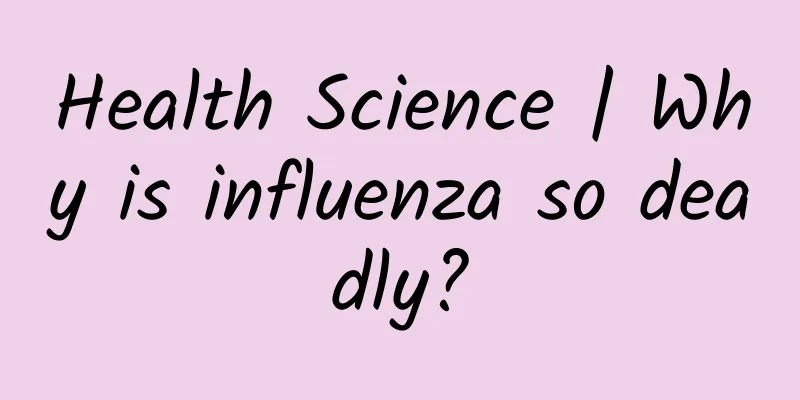What are the symptoms of postpartum qi deficiency?

|
We often hear Chinese medicine practitioners talk about the term qi deficiency. Many girls also experience symptoms of qi deficiency after giving birth. So what are the specific symptoms of qi deficiency? It is estimated that many people are not particularly aware that the common manifestations of postpartum qi deficiency are: physical weakness, easy sweating, frequent fatigue of the four livers, as well as pale complexion, weak speech and other symptoms. Let’s take a closer look at the specific symptoms of Qi deficiency. Qi deficiency symptoms can involve all aspects of the body. For example, if qi is deficient, the body will be unable to defend against external pathogens, the skin will not be firm, and sweating will occur easily; if qi is deficient, the muscles of the limbs will not be nourished, and the whole body will feel tired and weak; if qi is deficient, the clear yang will not rise, the clear orifices will not be nourished, and the spirit will be weak, dizzy and tinnitus will occur; if qi is deficient, the body will be unable to lead the blood circulation, and the pulse will be weak or fine; if qi is deficient, the water metabolism will be disordered, the water will not be transformed, and the distribution will be obstructed, which can cause phlegm to form drink, and even water evil will overflow and cause edema; qi deficiency can also lead to decreased function of the internal organs, thus manifesting a series of signs of internal organ weakness. 1. Lung Qi Deficiency The lungs control the qi, regulate breathing, connect to the skin and hair, and regulate the water channels. If the lung qi is deficient, its functions of promoting and descending, controlling breathing, regulating water metabolism, and resisting external pathogens will be weakened, resulting in symptoms such as shortness of breath, spontaneous sweating, a low and timid voice, coughing and wheezing, chest tightness, susceptibility to colds, and even edema and difficulty urinating. 2. Kidney Qi Deficiency The kidneys are located in the waist, store essence and energy, and control the opening and closing of the two yin meridians. Essence and energy fill the five internal organs and nourish the brain marrow. Deficiency of kidney qi and lack of nourishment will cause symptoms such as fatigue, dizziness, forgetfulness, soreness and weakness in the waist and knees, frequent and clear urination, clear and thin leucorrhea, pale tongue and weak pulse. If the kidneys cannot absorb air, breathing will be shallow and rapid, with more exhalation than inhalation. 3. Spleen deficiency The spleen is located in the middle burner and is responsible for transportation and transformation, ascending the lump of fluid, and regulating blood circulation. The spleen is weak and cannot transport and transform the essence of food and water, resulting in a lack of source for the production of qi and blood. Symptoms include decreased appetite, stomach discomfort after eating, fatigue, weight loss, loose stools, sallow complexion, pale tongue with thin coating, and weak pulse. 4. Deficiency of heart qi The heart controls blood vessels and stores the spirit. Deficiency of heart qi cannot stimulate blood circulation, nor can it nourish the spirit, so symptoms include palpitations, shortness of breath, and sweating, which are aggravated by exertion, fatigue, pale tongue, and a weak pulse. 5. Yang (Qi) Deficiency Qi deficiency may be manifested by pale complexion, dizziness, shortness of breath, laziness to speak, fatigue, and even fainting. In addition to the symptoms of qi deficiency, yang deficiency also includes fear of cold, cold limbs, spontaneous sweating, a slow or delayed and weak pulse, and a fat and pale tongue with a white tongue coating. When it comes to the dietary precautions for people with qi deficiency, the principles of the five internal organs' deficiency should be taken into consideration. People with qi deficiency should eat foods that have a qi-replenishing effect, are mild in nature, sweet or sweet and warm in taste, and should eat nutritious, easily digestible tonic foods. Avoid eating foods that damage or consume energy, and avoid eating raw, cold, greasy, spicy foods. When female friends experience symptoms of qi deficiency after giving birth, they must pay enough attention and make timely adjustments in their lifestyle, diet and daily life. If this symptom is not effectively relieved for a long time, it will have a great impact on their health, work and life. Women with qi deficiency after childbirth can eat more qi-replenishing foods, such as: royal jelly, black chicken, brown sugar, soy milk, etc. |
<<: How to treat postpartum Qi deficiency?
>>: Can drinking brown sugar water treat lochia?
Recommend
Breastfeeding diet to lose 10 pounds in a week
I believe it is every woman’s dream to have a cha...
Symptoms of amniotic fluid leakage during pregnancy
Amniotic fluid is a very important fluid for both...
Can an ectopic pregnancy happen again?
In recent years, the incidence of ectopic pregnan...
How to relieve pain in teenage girls
Adolescent girls are prone to menstrual cramps. M...
Can I practice yoga when I am pregnant?
We all know that yoga is an aerobic exercise that...
What to do if you have back pain during early pregnancy?
I believe everyone is familiar with the symptom o...
Fortune Chinese: Five predictions for social media development trends in 2014
An untested social media company with no revenue ...
What is better to eat during long menstrual period?
Normally, a woman's menstrual period lasts th...
Does cranberry have any effect on gynecology?
Many people know that cranberry is good for women...
What are the reasons for low progesterone at 40 days of pregnancy?
The health of pregnancy is directly related to th...
Reasons why leucorrhea is like water and has no odor
Normal female leucorrhea is generally white, some...
Women eat brown sugar or red sugar
Brown sugar belongs to a kind of old brown sugar....
Should you throw toilet paper down the toilet? How to use a toilet brush
It is really annoying to have a smell in the toil...
These 5 types of people are at high risk! A way to prevent lung cancer from becoming advanced! Kang Kang Comic Science ⑧
Renovation workers over 40 Smoking for more than ...
Can cervical hypertrophy heal on its own?
In fact, women generally do not need special trea...









